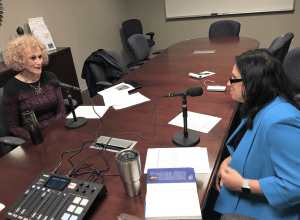
 Forrest Tuff is the CEO and Founder of One Vision Productions, an award-winning media and branding agency voted “Best of Georgia” and one of Atlanta’s “Best and Brightest Companies to Work For.”
Forrest Tuff is the CEO and Founder of One Vision Productions, an award-winning media and branding agency voted “Best of Georgia” and one of Atlanta’s “Best and Brightest Companies to Work For.”
Recognized among Georgia’s Most Influential Leaders, Atlanta’s Most Powerful Leaders, and the Top 100 Transformational Leaders by the John Maxwell Team, he is a Master Life Coach, Master Certified Motivational and Accredited Speaker®.
Known as the “Brand Strategy” expert, he has given keynotes and workshops throughout the U.S. and 15 countries across five continents. He is also an accomplished producer recognized by his trademark Filmpreneur® due to his creativity and entrepreneurial skill set.
His projects include commercials, documentaries, films, music videos, podcasts, stage plays, and television shows. An avid volunteer and philanthropist, his Pay It Forward program annually awards a grant to a nonprofit.
He is a recipient of the Outstanding Georgia Citizen Award, MLK Community Service Award, and President’s Lifetime Achievement Award.
Connect with Forrest on LinkedIn and follow him on Facebook and Twitter.
What You’ll Learn In This Episode
- Servant Leadership
- Professional Speaking
- Coaching Services (Business/Life)
- The Film Industry
- Philanthropy and Volunteerism
- Fatherhood and Parenting
This transcript is machine transcribed by Sonix
TRANSCRIPT
Intro: [00:00:04] Broadcasting live from the Business RadioX studios in Atlanta, Georgia, it’s time for Atlanta Business Radio. Brought to you by On pay. Atlanta’s new standard in payroll. Now, here’s your host.
Lee Kantor: [00:00:25] Lee Kantor here, another episode of Atlanta Business Radio, and this is going to be a good one. But before we get started, it’s important to recognize our sponsor, Onpay. Without them, we couldn’t be sharing these important stories. Today on Atlanta Business Radio, we have Forrest Tuff with One Vision Productions. Welcome.
Forrest Tuff: [00:00:44] Hey, thanks for having me, Lee.
Lee Kantor: [00:00:45] I am so excited to get caught up with what you got going on. Tell us about One Vision Productions. How you serving folks?
Forrest Tuff: [00:00:52] So basically we’re a media production and branding agency, and our job is to make other companies look good. We tell their stories through various media outlets, and we work with them to get their best message out to their consumers.
Lee Kantor: [00:01:04] But your business also is beyond just the actual act of production, right? You’re helping people in a lot of ways speaking, coaching, philanthropy, there’s tons more facets to this than just producing videos and media, right?
Forrest Tuff: [00:01:18] Yeah, absolutely. But as far as One Vision Productions, that’s where it started. That’s where everything kind of spearheaded, just with that mission to just make our customers look good. And so now it’s grown into other aspects, as you said, you know, speaking, training and doing other things to help businesses grow.
Lee Kantor: [00:01:36] So for the folks out there that maybe are right now working in one space, how do you kind of expand into those other complementary services? How did that come about?
Forrest Tuff: [00:01:46] You know, actually it was kind of organic, you know, working in this media space. I actually had someone to say to me, hey, we having a conference and we’d love for you to come out and speak. And in doing that, they asked me, you know, how much would they would it cost for me to come out and speak? And so that started my professional speaking. You know, I wasn’t really thinking about it, but that was the catalyst that got me going in that space. And for years, for about seven years, I wanted to give back to other organizations. So I became a mentor with Score. That’s a resource partner through the Small Business Administration. And so I had the opportunity to mentor hundreds of businesses and teach workshops and help individuals grow their business and actually help others sustain their businesses. So that’s how some of these other things started to branch out from just the production.
Lee Kantor: [00:02:38] So that’s a great lesson for entrepreneurs is to always be open to other things, to not just go, okay, this is all I do. So, you know, I’m not interested in anything else. So if something is interesting to you, you should kind of pursue it a little bit, right?
Forrest Tuff: [00:02:51] Yeah, absolutely. And you know, one thing I always say about business, because we’re in the business and I always tell people we’re in the business to make money. Yes, we’re serving a customer, but we’re in the business to make money, support our lifestyle, support our families and kids and other things. So you have to know when there’s an opportunity for you to pivot and create more revenue and not pigeonhole yourself if that opportunity makes sense. So I will say this if it makes sense, and you can prepare yourself mentally and get the things you need to help you make those pivots, then I think it’s great to continuously grow your portfolio.
Lee Kantor: [00:03:28] So how do you kind of decide if something makes sense or not? Do you have kind of a checklist, or is there some philosophy that helps you decide, okay, I’m going to pursue this or I’m not going to pursue that?
Forrest Tuff: [00:03:42] Yeah, I operate out of the storytelling vein. It’s kind of weird, but when I started out doing this video thing, even when I was a kid, it was just video. Tell stories, capture memories. So as I started a business 20 years ago, that was what I wanted to do. I wanted to continue to tell stories. And as it grew, we started to tell stories not only from a wedding, from films, but also we’re telling the stories of government agencies, corporations. So I’m in that vein. And when I got into. Public speaking. I was doing the same thing. I was telling stories. I was finding ways to share things that would help others to grow. And so is the same with coaching, listening to stories and and listening to people. And so it’s all about really taking the time to care about people, listening to people. And that’s usually the things that help me to find out what I could be interested in.
Lee Kantor: [00:04:38] Now, throughout your whole career, you’ve been recognized as, you know, best and brightest, best of Georgia, great place to work. All these kind of all this recognition around kind of really the culture of your company. How did you kind of build a culture that gets recognized so often? What were some. Like where did you go for mentorship or for learning in order to build a team and a community that you’ve done so far?
Forrest Tuff: [00:05:11] I think one of the things that originally helped me was. Coming up, I played sports, I played sports at a collegiate level. I actually wanted to play professionally, but due to an injury I didn’t go. So I did play at the collegiate level and I learned how to work within the team since I was a kid. So I use those same principles when I work with people. I had the small stint where I worked in retail and corporate, and there were some things that I may not have agreed with, but there were also some things that were very valuable in terms of team building and those exercises. So I use that positive mantra of reinforcing people and letting them know the vision and being a part of that vision, because when people can take ownership of something and you also support them to grow, oftentimes it can have a positive effect. So in my case, that’s what I did. And that’s how I’ve been able to have such an impact with not only my team members, but just individually and just the things that we’ve done with our clients and customers over a period of time.
Lee Kantor: [00:06:14] Now, what are some dos and don’ts? Maybe for some young leaders and then even some that have come through sports? Because in sports, for every nurturing, benevolent dictator like coach, there’s the, you know, kind of my way or the highway. I’m, you know, listen to me or I’m going to yell at you or humiliate you. Any dos or don’ts for that new leader, because sometimes there’s some, you know, poor examples, especially in the world of sports.
Forrest Tuff: [00:06:42] Absolutely. I think training is necessary. I would be remiss to say that all of these things that we’ve accomplished were without training. So if you find yourself in an area where you recognize that you may not have. The best training or the most knowledge. Go get it. Anytime I wanted to step out into another arena, just like public speaking, it wasn’t something I just jumped into. I actually went in. Trained with Toastmasters, and then I became a member of the National Speakers Association. So it took time and training, even with your team members taking leadership classes. So those are the things I would encourage anyone. Is that as you move into these new spaces, there’s so many different certifications or trainings that you can take to not only become better at what you do, but to also help your team become better. So that for me is how I did it. And I would encourage anyone that’s embarking in entrepreneurship or any type of leadership to make sure that you stay on top of training and always listen.
Lee Kantor: [00:07:46] Now when it comes to coaching or training, how do you kind of discern which are the people that really know something? And then who is somebody who might just be saying they know something because it’s kind of the Wild West out there, and it’s hard to tell because people can look slick on a one page website and, you know, they can be persuasive even in person. But how can you tell? Or how do you kind of recommend vetting? What’s a good coach like? Who’s a good coach and who’s maybe, you know, need need some more time?
Forrest Tuff: [00:08:22] Well, I would say interview the person that you’re going to hire to be your coach. You know, one of the things that I did personally before I became a coach, and this isn’t for everyone, is I was a score mentor for almost eight years. I spent a lot of time learning just how to listen to people, how to find the right information. And once I did that, I began a journey with Transformation Academy to become a certified Master Life Coach. So there’s a process for me that took anywhere from 8 to 10 years. Now, that’s not to say everyone has to have that same journey, but for me, I wanted to make sure that I had a history and I had people that could verify the work that I’ve done. And I would say, for someone who’s embarking on working with someone. If you don’t feel comfortable, ask for references. Try to find people that can attest to what they’ve done and how they were able to support them in their growth. So that’s the thing. I would just do your due diligence. You don’t have to get caught up in social media, but, you know, find out what you know from them, spend some time talking to them.
Lee Kantor: [00:09:33] So when you were deciding, you know, you say, okay, I’m going to be a coach. Now, this is important to me. I think I can provide more value. How did you kind of land on transformational leaders? Like what? I’m sure you went through some. You had to kiss some frogs, right? You had to go and go, okay, this one isn’t for me. You know, this isn’t resonating. This one is more of a fit. Like, how did you go about choosing transformational leaders?
Forrest Tuff: [00:09:58] Well, I actually go through that vetting process myself. When I’m working with someone, I’m not just eager to, hey, let’s give me your money and I’ll coach you. I actually find out what is the end game, what are they trying to accomplish? Who are they? Because that that coaching fit is more like a synergy. It’s like a team, if you will. We we need to work together to try to find how we can grow in this space. So for me, it’s not just about you paying for something. We have a conversation. There’s a first thing we have. We have a 30 to an hour, minute long conversation just about what it is you’re trying to accomplish and your goals. And there have been some people that have suggested this may be a better fit for you to maybe try this route. Or maybe let’s try this on a small basis and see how it works out before we go further. And some we didn’t go further. You know, we maybe had 1 or 2 trial periods. We recognize that this wasn’t a fit and we moved on. So I think for both parties, I think you have to be open and willing to be honest about the relationship and about how you can communicate and if it’s going to work for you to gain that end result.
Lee Kantor: [00:11:05] So what are some when you’re having those initial conversations with someone, what are kind of some of the qualities that they must have, and what are some of the qualities that are kind of super red flags where okay, I know this isn’t going to work.
Forrest Tuff: [00:11:21] Red flags as if they already know everything. As you’re talking about it. That’s a red flag. Someone who already knows all the answers but is reaching out for help. That’s a red flag for me if you know everything. Secondly, if you’re not willing to engage in dialog, meaning true dialog is I listen to you and then I respond and then you listen to me. You respond that type of dialog to be able to actually hear one another. One of the things that I think happens so often is people. Talk at each other as opposed to talking to each other. They talk at each other. They’re saying things. They’ve been here, they’ve done that. And you know, often times it can lead to. A non synergistic, I would say energy between those two people. So for me I would say just having that. That place of actually being able to listen to one another and actually respecting the concept, to actually see if it’s going to be something that helps you.
Lee Kantor: [00:12:26] Now, is there a story you can share? You don’t have to name the individual, but maybe a success story where they came to you, maybe at a plateau, or they were struggling, and then after working with you, they got to a new level.
Forrest Tuff: [00:12:40] Yeah, I actually had a story. It was a family owned business and it was a mother and a daughter and. The challenge is that the mother was trying to exit the business, and the daughter was coming into the space of running the business, and they had done very well. The business had been around for about 25 years. They had been very successful. And the thing that happened is that. The daughter had different ideas, she had a different methodology. And I think that often happens when you run a business one way and you’ve had success, and then here comes someone now who’s like, oh, I want to do this and do that. And so that innovation oftentimes can seem daunting to someone who’s actually sustain that business and kept it afloat and kept it profitable. So in that sessions, in those sessions that we had, we were able to find a place where they embraced each other and respected one another’s viewpoints. And so it was a transition. And this happened over a period of time. I think we were working together for about three months. And in that transition, they began to embrace one another’s ideas and and see how they were able to work together and still be able to keep some of those old values, but add innovation and keep things up to times.
Lee Kantor: [00:14:00] And then in circumstances like that, a lot of times your role is just being kind of that, you know, honest third party, right? Like you’re you’re not there really advocating for one or the other. You’re just trying to keep everybody playing nicely together so they can all get the outcome they each desire.
Forrest Tuff: [00:14:17] Absolutely. And it involves a lot of listening in order to truly hear. Each person’s perspective and to see where they are having a miscommunication. So that is one of those areas. That was a very unique situation for me. But it was it was a great opportunity. To to sit back and listen and to see the end result for them to come to a conclusion. Because at the end of the day, when you’re coaching, you’re not telling someone. It’s almost like a physical therapist. A physical therapist isn’t going to fix you. They’re going to work with you until you get to the point where you can do it on your own. So I kind of look at coaching almost like an analogy of a physical therapist, someone that’s going to work with you and get you to a place where you start to be independent and you start to see how you can do things. And that, for me, was one of those great moments.
Lee Kantor: [00:15:12] Right. And it’s important to note that a lot of times, if they don’t have the humility to ask for a coach or the vulnerability to ask for a coach, and they try to do it themselves, they might have offended each other. They might have, you know, hit some hot button issue that they knew the other person was going to react to and they could have really done damage. And just like you said, with physical therapy, you can go, okay, I know how to do this, and then I can hurt myself worse than when I got here.
Forrest Tuff: [00:15:41] Absolutely. Absolutely. And I can attest to this, Lee, because as a person who’s. Coach others. I’ve also received coaching and it takes a different level of humility. It takes a certain level of being open in order to. And, you know, sometimes you have to have a little thicker skin because some of these things aren’t going to always rub you right. But if you want growth, you have to be able to receive it and know that it’s coming from a place of trying to help you grow. And, you know, don’t fight it, don’t fight it. So I’ve had coaching and I had to I’ve heard some things that made me go, oh yeah, I don’t really feel comfortable with what you said, but I had to realize that it was in the best interest, for I was trying to go.
Lee Kantor: [00:16:30] Yeah. And that’s the important part, is a coach like you said isn’t there to do it for you. It’s to help you be the best you. And sometimes that is some tough love or some asking you some hard questions.
Forrest Tuff: [00:16:43] Absolutely.
Lee Kantor: [00:16:44] So what do you need more of? How can we help you? You got so much going on. There’s a lot of plates spinning in your world.
Forrest Tuff: [00:16:51] Well, everything is kind of coming to a head. It’s it’s all in the same vein because now, you know, I’m running the media business, we’re doing films, you know, I’m doing speaking and also leadership training. And one of the things that I really focus on is youth. I really focus on helping the youth find their voice through teaching them how to speak, how to communicate, how to interview, how to present themselves. And that’s something that is now more for me, like a passion. I really love working with youth and I love giving back and into the next generation, so that’s kind of where I really am. I’ve always done this, but it’s just something now that as my kids are getting older, they’re out of college getting their master’s, I now can start to impart into other, other children. So that’s really where am Lee? I’ve just really want to continue to keep the business steady and grow it and continue to work with youth and give back.
Lee Kantor: [00:17:48] So if somebody wants to connect with you and learn more, what is the website? What’s the best way to get a hold of you?
Forrest Tuff: [00:17:54] Well, if you want to get in touch with me and other things, you can go to forest. Tough.com. That’s for two hours. Two t’s, two F’s forest tough.com. And if you want to know more about my business and working in the production space, you can visit One Vision productions.com.
Lee Kantor: [00:18:14] Good stuff. Well congratulations on all the success. You’re doing such important work and we appreciate you.
Forrest Tuff: [00:18:20] Thank you so much Lee. I really appreciate you having me on.
Lee Kantor: [00:18:22] All right. This is Lee Kantor. We’ll see y’all next time on Atlanta Business Radio.
About Our Sponsor
OnPay’s payroll services and HR software give you more time to focus on what’s most important. Rated “Excellent” by PC Magazine, we make it easy to pay employees fast, we automate all payroll taxes, and we even keep all your HR and benefits organized and compliant.
payroll services and HR software give you more time to focus on what’s most important. Rated “Excellent” by PC Magazine, we make it easy to pay employees fast, we automate all payroll taxes, and we even keep all your HR and benefits organized and compliant.
Our award-winning customer service includes an accuracy guarantee, deep integrations with popular accounting software, and we’ll even enter all your employee information for you — whether you have five employees or 500. Take a closer look to see all the ways we can save you time and money in the back office.

 Forrest Tuff
Forrest Tuff
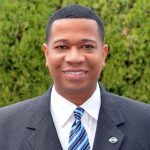 Forrest Tuff is the Founder and CEO of
Forrest Tuff is the Founder and CEO of 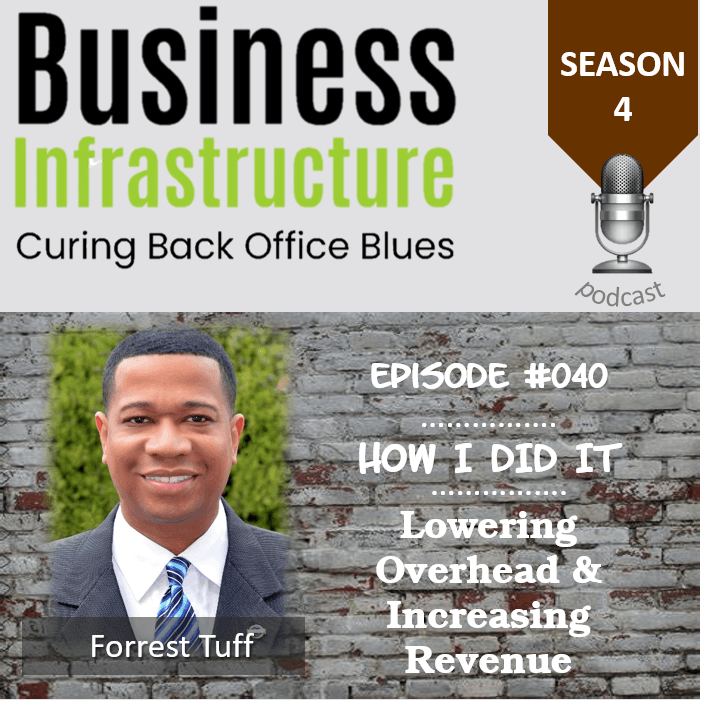

 Moira Vetter is Founder & CEO of
Moira Vetter is Founder & CEO of 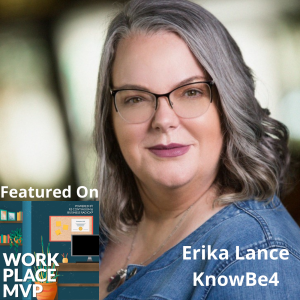
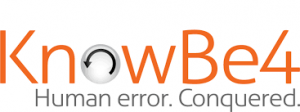

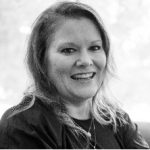 In addition to serving as the host to the Workplace MVP podcast,
In addition to serving as the host to the Workplace MVP podcast, 